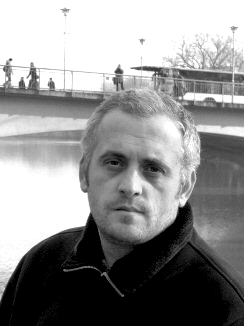
Five years of UN administration are enough. The status of Kosova must finally be cleared up.
Today Kosova elects a new parliament, for the second time since Slobodan Milosevic's Serbian military units were driven out of this country of two million people. NATO's intervention five years ago deeply moved Europe and the whole world, but following the 11 September [2001] attacks Kosova has receded from the focus of attention. Had it not been for the March riots this year, when fanatic youths torched Serb houses and churches and threw stones at those whom they had greeted as liberators just five years ago, Kosova would have been entirely forgotten in the meantime. Yet, in the public discussion prompted in Germany by these uncontrolled, but at the same time organized outbreaks of violence, the talk was more about the role played by the German troops in Prizren than about the situation in Kosova and what lies behind it.
Until the events in March, the UN as well as the German government had neglected to pay attention to the [UN] Mission and to the corrupt doings of some of its subordinate units. It took the critical report by the Norwegian diplomat Kai Eide before notice was finally taken of what was going on. At the same time, it's not only the United Nations administration (UNMiK) that is responsible for these abuses. Let us recall that the German government has dispatched people to the Balkans whom it had previously discarded from its own ranks, like for example the former chief coordinator for the Stability Pact, Bodo Hombach. His mission was judged a failure; in the meantime, even the residents of the Balkans are making fun of his misadventures. Who still remembers that, at the G-7 meeting in July 1999, Chancellor Schröder and foreign minister Fischer announced a ‘Marshall Plan’ for the Balkans? Nothing more has come of it other than the appointment of a successor to Hombach, the Austrian Busek. While the latter was well informed about the conditions and enjoyed higher regard than Hombach, yet he too brought little for the Balkan residents, other than interviews and communiqués. Schröder's next man was the former chief advisor Michael Steiner, who had been dumped from the government. In his year and a half as chief of mission for the UN in Kosova he did more harm than good with his excessive energy, which one could also characterise as arrogance. His project of ‘standards before status’ has meanwhile suffered a merciless trimming at the hands of Secretary-General Kofi Annan's office. Of Steiner's eight standards only one remains, the one that is self-evident: that normal conditions of life should also make it possible for the Serbs in Kosova to move about freely and in safety. Schröder's third emissary finally passed over the Balkans altogether and flew on in the direction of Turkey: the EU enlargement commissioner, Günter Verheugen. He did not even give the Balkan residents a glimmering of a hope that they could ever become a member of the EU. At the same time EU special envoy Javier Solana is trying to keep alive the artificially created [state union of] Serbia and Montenegro. In this he has nothing to rely on but formulaic expressions, since the two republics have different currencies, customs, and police. Solana's project, which envisions the possible creation of an asymmetric federation between Serbia, Montenegro and Kosova, is simply unrealistic.
Without Washington, and consultation with the Kosovar population which supports separation under any circumstances, there can be no lasting peace in the Balkans. In half a year negotiations are to begin about the final status of Kosova. At that point all Kosovar parties - regardless of which among them wins the coming elections - will be in the grip of the urgent desire to ‘write history’ and to reach a ‘historic solution’ for their country. Even though it is really about something entirely different. Kosova today is the poorest place in Europe; it has the highest unemployment rate on the continent and at the same time also its highest birth rate. That is why the United Nations, Brussels and Washington cannot afford to take as their starting point either their own visions or the historical dreams of Kosova's politicians. The West should simply make the position clear. Most important, in my view, would be to give a clear signal that there can be no return of the Serbian state authorities to Kosova. There is no other way: the West must signal to the Kosovars that they will get independence, though of course under strict control and guidance and subject to certain firm conditions. The very first of these has to be that the rights of the minorities will be protected - above all, those of the Serbs who live in Kosova. In addition, corruption within the various institutions must be fought, the pre-democratic conditions in public life must be brought to an end, and at last jobs must be created. And with that, we are once again back to the status of Kosova: as long as this is not cleared up, no investors are going to come. That alone is reason enough to put an end to a situation in which it is up in the air.
This article was translated from the Albanian by Drita Zumberi, then from the latter’s German by András Riedlmayer. It appeared in Die Welt, 23 October 2004. Beqë Cufaj (33) was born in Kosova and is an author who has lived in Germanyfor the past six years. His novel The Gleam of the Foreign will be published in German next spring by Zsolnay-Verlag.